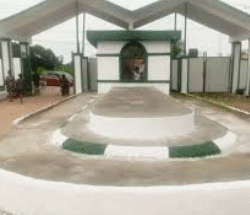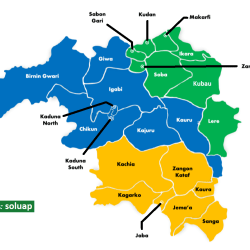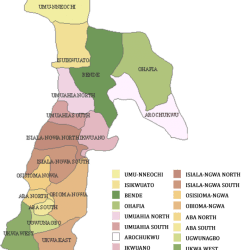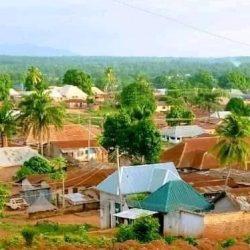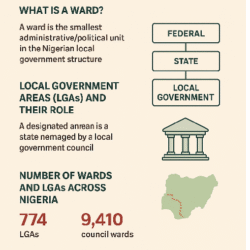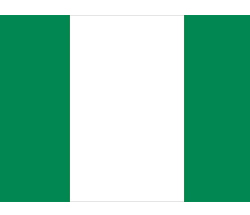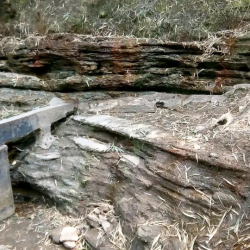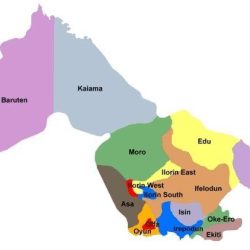Umuahia South LGA is one of the seventeen (17) Local Government Areas in Abia State, Nigeria. It is located in the southern part of Umuahia, the state capital, with its headquarters at Akanu Ngwa (Akanu). The area is predominantly Igbo-speaking and known for its agricultural and trading activities.
Below is the complete list of the council wards in Umuahia South LGA:
- Ahiaukwu
- Amakama
- Ezeleke
- Nsirimo
- Ohiya
- Old Umuahia
- Ubakala Nsirimo
- Ubakala Ntigha
- Ubakala Olokoro
- Ubakala Umuagu
These wards form the basic administrative and electoral units within the LGA, each comprising multiple villages and communities.
Umuahia South Local Government Area (LGA), Abia State, Nigeria
1. Umuahia South
Umuahia South Local Government Area (LGA) is one of the seventeen (17) LGAs in Abia State, located in the southeastern geopolitical zone of Nigeria. It forms part of the Umuahia metropolitan area, serving as the southern administrative and residential extension of the Abia State capital, Umuahia.
The LGA plays a strategic role in the state’s governance, agriculture, education, and commerce, with its headquarters located at Akanu Ngwa. It shares both urban and rural characteristics, combining elements of traditional Igbo culture with the modern influence of the capital city.
2. Geographic Location and Boundaries
- Coordinates: Between latitude 5°25′ and 5°32′ North, and longitude 7°27′ and 7°32′ East.
- Land Area: Approximately 140–160 square kilometers.
- Boundaries:
- North: Umuahia North LGA
- South: Isiala Ngwa North LGA
- East: Ikwuano LGA
- West: Isiala Ngwa South LGA
The LGA lies within the humid tropical rainforest zone, characterized by fertile soils, abundant rainfall, and dense vegetation, which favor intensive agriculture.
3. Administrative and Political Structure
Umuahia South is subdivided into 10 political wards, each functioning as an electoral and administrative unit under the supervision of councilors who represent them in the Local Government Council
Each ward contains multiple villages, polling units, and traditional communities, overseen by autonomous community leaders (Ezes) in line with Abia State traditional governance laws.
4. Demography
- Estimated Population (2022 projection): ~140,000 – 160,000 inhabitants
- Ethnic Group: Predominantly Igbo
- Language: Igbo (native), with English widely spoken for education, governance, and trade.
- Religion: Primarily Christianity, with small adherents of traditional Igbo religion and Islam.
- Population Density: High in semi-urban clusters like Akanu, Amakama, and Ohiya, while rural settlements such as Nsirimo and Ezeleke maintain lower densities.
5. Economic Activities
The economy of Umuahia South is agro-based, but diversified through small-scale trading, transportation, and civil service employment. The proximity to the state capital enhances access to infrastructure and markets.
Major Economic Sectors:
- Agriculture:
- Key crops include cassava, yam, maize, oil palm, vegetables, and cocoyam.
- Animal husbandry (poultry, goats, and pigs) is also common.
- Commerce:
- Markets such as Ahiaukwu Market, Ubakala Market, and Old Umuahia Market serve as major trade hubs.
- Petty trade and retail activities dominate the informal sector.
- Civil Service:
- Many residents work in Abia State ministries, parastatals, and educational institutions in nearby Umuahia metropolis.
- Artisan and Small Industries:
- Includes furniture-making, tailoring, shoe repair, food processing, and motorcycle transport services.
6. Infrastructure and Social Amenities
Transportation:
- The Enugu–Port Harcourt Expressway passes through parts of the LGA, linking it to major cities in southeastern Nigeria.
- A network of rural and urban roads connects the various wards and communities.
- Public transport includes minibuses, tricycles (keke), and motorcycles.
Education:
- Several public and private primary and secondary schools operate under the Abia State Ministry of Education.
- Nearby higher institutions include Michael Okpara University of Agriculture (Umudike) and Abia State Polytechnic (Aba).
Health Facilities:
- The LGA has primary health centers in each ward, supplemented by private clinics and maternity homes.
- The Federal Medical Centre (FMC) in nearby Umuahia serves as the major referral hospital for residents.
Utilities:
- Electricity: Supplied by the Enugu Electricity Distribution Company (EEDC), though supply is intermittent.
- Water: Predominantly from boreholes, streams, and private wells.
- Telecommunications: Coverage by all major Nigerian networks (MTN, Glo, Airtel, 9mobile).
7. Climate and Environment
Umuahia South experiences a humid tropical climate with two distinct seasons:
- Rainy Season: March to October (average annual rainfall ~2,000–2,200 mm)
- Dry Season: November to February, influenced by the Harmattan winds.
- Average Temperature: 25°C – 30°C
The LGA’s environment supports lush vegetation, but also faces challenges of soil erosion, deforestation, and improper waste management, particularly in growing peri-urban areas.
8. Culture and Social Life
The people of Umuahia South are rich in Igbo cultural heritage. Traditional institutions coexist with modern governance.
Cultural Features:
- Festivals:
- New Yam Festival (Iri ji) celebrated annually across all communities.
- Ekpe and Mmanwu masquerade festivals reflect the area’s ancestral traditions.
- Traditional Governance:
- Each community is led by a recognized Eze (traditional ruler), who works with village elders and youth groups.
- Marriage, Music, and Dress:
- Traditional attire (George wrappers, Isi Agu blouses, coral beads) remains integral to ceremonies and identity.
9. Tourism and Landmarks
Though not a major tourism hub, Umuahia South has sites of cultural and natural interest, including:
- Old Umuahia Heritage Site – reflecting the early colonial and missionary presence.
- Ubakala Hills and Streams – scenic natural landscapes.
- Traditional markets like Ahiaukwu serve as both economic and cultural gathering points.
10. Governance and Developmental Outlook
Umuahia South LGA is governed by a Local Government Chairman, supported by a Legislative Council of ward councilors. The council is responsible for local policies, rural development, tax collection, and community services.
Key Developmental Challenges:
- Rural road deterioration
- Erosion control and waste management
- Youth unemployment
- Inconsistent power and water supply
Ongoing and Potential Projects:
- Road rehabilitation through state and federal interventions
- Agricultural extension programs for rural farmers
- Youth empowerment schemes
- Health and sanitation campaigns
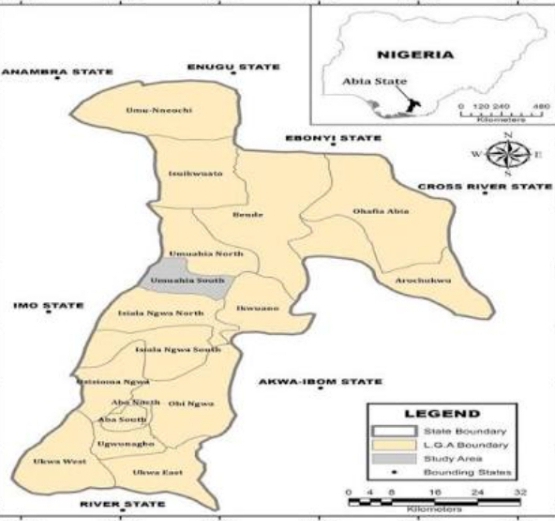
Umuahia South LGA represents the cultural, administrative, and agricultural heartland of Abia State’s southern capital region. Its proximity to Umuahia city makes it a strategic growth corridor, balancing urban expansion with rural sustainability. With improved infrastructure, governance, and investment in youth and agriculture, Umuahia South holds strong potential for becoming one of the most developed semi-urban LGAs in southeastern Nigeria.
